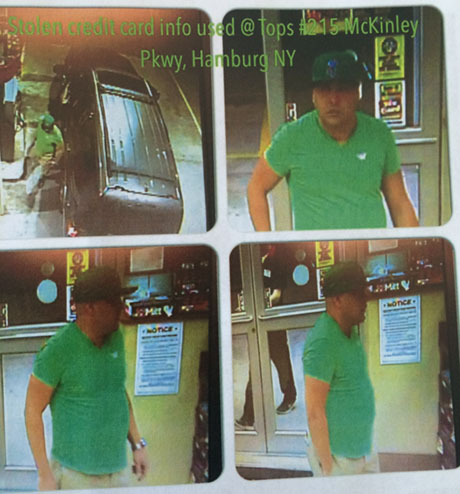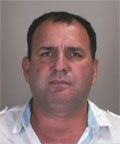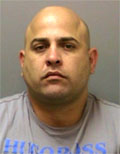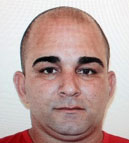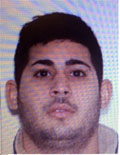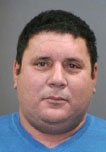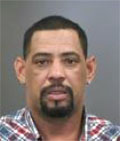Genesee County EMS coordinator says it's about time to replace mobile communications command unit
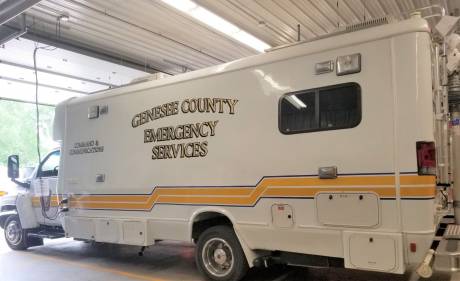
While staffing, or lack thereof, has been at the forefront of issues facing the Genesee County Office of Emergency Management Services, the importance of dependable equipment also is high on the list.
County EMS Coordinator Tim Yaeger on Monday afternoon emphasized that point to members of the Genesee County Legislature’s Public Services Committee during a meeting at EMS headquarters on State Street Road.
“We are looking at replacing ESU2, which is labeled as a mobile communications command unit … (and serves) as the mobile office,” Yaeger said. “It’s 16, 17 years old and it’s starting to show some wear and starting to show its weaknesses in reliability.”
Yaeger said he is in the process of putting a capital project together to obtain a larger mobile unit, stating that he expects the cost to be in the $400,000 to $450,000 range. He said he is hoping to “carve out a bit of money every year,” adding that the current unit does have some value as a trade-in.
He said the mobile unit is used once or twice a month on average, and is the only vehicle of its type in the county.
“The last thing we want it to be is not reliable,” Yaeger said.
The EMS coordinator touched on several other topics, including the Ready Genesee app, day-to-day staffing and operations, a contract with Municipal Resources Inc. to study the county’s fire/emergency response capabilities, training, other projects and funding.
READY GENESEE APP
Yaeger reported that his office will be working with the Genesee County Health Department to research other apps “in regard to capabilities, efficiency and cost effectiveness as an alternative to the app currently being used by the county.”
The Ready Genesee app was launched in April 2016 to assist residents in case of emergencies and as a tool to receive instant notifications should an emergency occur.
“This app has proven to be a valuable tool in communicating with the public in the past and during the on-going COVID-19 health crisis,” Yaeger reported.
DAY-TO-DAY OPERATIONS
“Overall, as far as the normal day-to-day operations of the office, we’re in really good shape,” he said. “There are struggles that we’re starting to see from the volunteer staffing side. It’s starting to affect our specialized team capabilities; it’s starting to affect our instructor staff that both work for the county and New York State.”
Yaeger said the candidate pool in the EMS field is shrinking.
“So, it’s that same issue (as staffing of volunteer fire departments) with the skill sets that we’re needing becoming very scarce, and my fear is that through that process we start to lower the bar. And, that’s the furthest thing that we need,” he said.
He said the expectations of his office continue to increase, noting that county EMS employees are having to be more “hands on” when it comes to emergency response.
Yaeger mentioned that Gary Patnode has been promoted to deputy coordinator position, and interviews are being scheduled to fill his former post as training technician.
Responding to a question about the factors affecting the EMS candidate pool, Yaeger said, “The expectation of the skill set that they’re required to have is getting harder and harder to find. That’s a difficult part. The pay scale is always an issue; it’s very competitive – to be able to find those opportunities.”
He also said the reality is that there are fewer people involved in public safety, citing the number of hours needed for training and the level of compensation in many cases.
MRI’S WORK CONTINUES
Yaeger said he was encouraged by last month’s visit of four MRI representatives, reporting that they held 21 meetings in a three-day period.
MRI consultants will “make more rounds to fire companies and getting surveys out to firefighters and the community” as well as looking into the age and capabilities of fire stations throughout the county, he said.
He also shared the situation in the Town of Bethany, where the fire chief is shorthanded due to serious illness of a longtime paramedic.
“He’s at a loss,” Yaeger said. “What does he do now because he has less and less medics? So, how do we get the ambulance on the road? He’s very frustrated and upset.”
It falls upon county EMS to bridge the gap, he said, until a solution to our crisis in staffing across the county is found.
TRAININGS MOVE FORWARD
Yaeger said trainings have restarted after being shut down by COVID-19.
Some of those trainings include:
- Automated external defibrillator drills. The initial AED training was conducted by the county in 2017 with recertification required every two years. Office of Emergency Management staff is in the process of coordinating the in-person AED recertification for county employees. Training is planned for 2022.
- Fire drills. Six fire drills were completed to date with an additional 13 scheduled at county-owned or occupied buildings. In addition to the EMS office staff, personnel at Facility Management, City of Batavia Fire Department and Town of Batavia Fire Department will or have assisted in these drills. AED inspections are being conducted at the time of the fire drills.
- Fire extinguisher inspection/AED inspection. As of 2018, the EMS office has taken on the added responsibility of the annual fire extinguisher inspections and semi-annual AED inspections. This effort is an attempt to provide a more comprehensive and cost effective service. Inspections of fire extinguishers in county buildings are complete for 2021.
PROJECTS INCLUDE PARKING LOT
Calling it the most important upgrade at this point, Yaeger said his office received a State and Municipal award for $60,000 to repave the main parking lot.
Work consisted of repaving of the main entry and main parking area of the Fire Training Center/Emergency Operation Center, including the rear driveway and entry to the rear apparatus bay as well as adding gutters to the main facility.
Also, Yaeger mentioned he is awaiting the go-ahead to resume construction of a training maze that was started by Iroquois Job Corps students. Materials were acquired through a donation from a local business.
He said the EMS office has received approval from Homeland Security of New York State to use Homeland Security funds to buy an unmanned aerial system (drone).
“It took us about a year to put the policies and procedures together that FEMA (Federal Emergency Management Agency) requires to have in place to be able to use Homeland Security money to purchase that drone,” he said.
HOMELAND SECURITY FUNDING DECREASES
Yaeger said funding from Homeland Security fell by 11 percent for this fiscal year, from $82,336 to $73,620.
“I don’t know if that money is going to continue but it’s a little bit disturbing because we rely a lot on that money to run our programs and run our office,” he offered. “I’d hate to see that Homeland Security money downsize itself. It’s really important that we continue that appropriation.”
Additional funding sources include Hazardous Materials Emergency Preparedness, Emergency Management Performance, Regional Hazardous Materials and Public Assistance Program grants.

